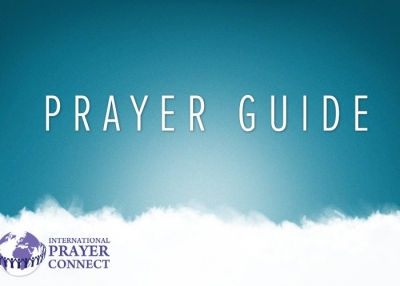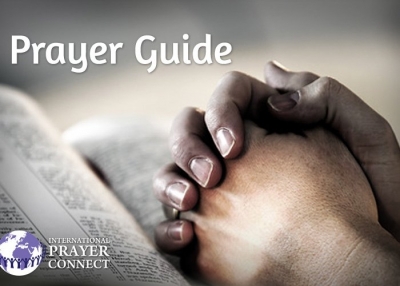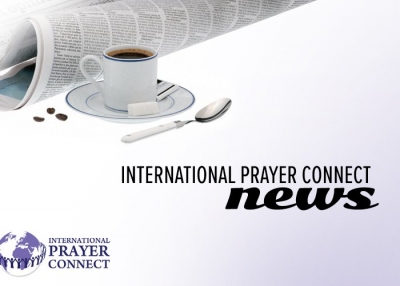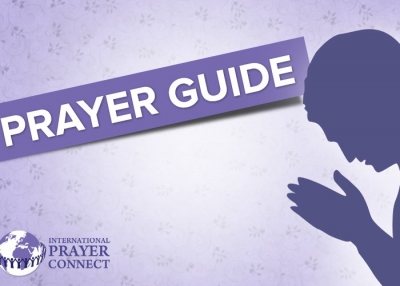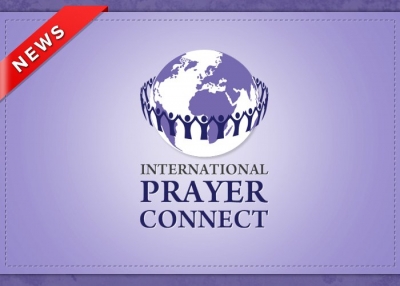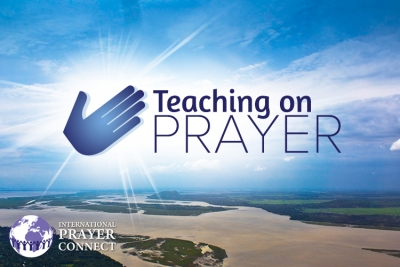Joel News reported that more than 230,000 died in the January 12th earthquake of 2010. The country is still being rebuilt. Many relief agencies and churches are still working to transform the poorest country in the Western Hemisphere. www.joelnews.org
Please pray:
1. For well coordinated relief efforts.
2. For good working relationships with the government and the relief agencies.
3. For a spirit of cooperation, patience, and thankfulness among the displaced citizens.
4. For healing of those injured and for the grief of those who lost loved ones.
5. For boldness of Christian relief workers to share the gospel of Christ Jesus verbally besides their physical caring.
6. For weather conditions that will allow for continued clean-up progress.
The very first conference on “Children at Risk and the Christian’s Response” is being held from February 7-10, 2011. About 100 pastors and leaders are expected to attend with the following objectives:
1. To make visible the Christian response to children at risk.
2. To inspire church leaders for engaging with children at risk.
3. To develop effective networking and collaborations.
4. To bring Christians together for fellowship and prayer.
Please pray:
1. For the conference that the Lord would touch each individual’s heart to help the children at risk of that region.
2. Pray for the two leaders who are facilitating the conference as they will need and use skills of organizing, guiding conversation, directing, over seeing, observing, following up, funding, etc.
3. That the impact of this conference will have a far-reaching impact on the lives of many children at risk in Nepal.
4. Pray for spiritual protection over the conference.
5. Pray for a clear and united leading of the Holy Spirit in the directions Christians should go and for obedience to follow the calls.
Joel News (www.joelnews.org) reports that more than 40 years after the Cultural Revolution, Chinese Christians are being bold in sharing their faith in public, meeting in a public place (attendance is around 1,000), and going into communities to distribute food and clothes. China so far has taken a blind eye to this.
Please pray:
1. For the Christian church in China to remain a light of peace and the bearer of good news of God through Jesus Christ.
2. For the Chinese government to continue showing favor on the Christians meeting, ministering, and sharing their faith.
3. For good relationships between the church and the government.
4. That many more will come to know the Lord now that it is more public.
5. For spiritual and physical protection of the Christians in China.
6. For the church’s increased knowledge of the Word and obedience.
Window International Network (WIN, www.win1040.com) reports the collapse of the Lebanon government on January 12th after 11 Hezbollah leaders resign in objection to the United Nations seeking to investigate them for a 2005 bombing that killed 23 including former President Rafik al-Hariri. Without the Hezbollah leaders, Prime Minister Saad al-Hariri’s government would disintegrate causing the current political crisis, leaving the country vulnerable, and hindering businesses and advancement of the Lebanese people.
Please pray:
1. For the end of terrorism in Lebanon.
2. God would place political leaders in power who are “after His own heart”.
3. For peace in this current political uncertainty and protection of the Lebanese people with a weak government.
4. For the Christians in the land to see growth and have boldness in ministry and for God’s protection over them while sharing.
Window International Network (www.win1040.com) reports that since “December 26th, Iranian security forces stepped up their efforts to eliminate the ‘corrupting’ influence of Christianity by arresting 25 Christian Believers.” In January of 2011, estimates range as high as 60 arrests with many detained.
Elam Ministries (www.elam.com) report 70+ arrests. There have been reports of torture besides intense interrogation where they are blindfolded and questioned for hours and days. Psychological pressure is placed upon them so they would renounce their faith in Christ Jesus. No family members are allowed to visit during the interrogations.
Click Here for pictures of some of those arrested.
Please pray:
1. The Lord will be present with all Christians who have been arrested, questioned, detained, and tortured—that God would give them strength, comfort, the ability to love and forgive. May Christ be glorified in their sufferings.
2. Pray for swift end to the ordeal the prisoners go through.
3. For police officials that they lose the hatred for Christians and be moved by the Holy Spirit for themselves to be saved. Pray for the government to find favor with the Christians in their country.
4. That God’s power of protection and love for His Children be clearly demonstrated before the Iranian police to see what kind of God He is.
5. For God to reveal dreams and visions to those who govern, fear God, and persecute Christians.
Sudan Support Network (www.givengain.com) reports:
It's final and it's true. The amazing referendum results announced this Sunday in Khartoum. There is a host of reasons to praise God related to the referendum. To just think of some of these:
• The high percentage vote of the registered voters.
• The incredibly high percentage vote in favor of secession.
• The ABSOLUTE zero number of legal complaints about the referendum process and results.
• The degree of acceptance that the referendum was in essence free and fair by the Khartoum government and the high level of support of that from the people in North Sudan.
• The almost lack of news coming out of Sudan, indicating the global acceptance of developments in Sudan.
• The high level of commitment by the people of Southern Sudan to move towards declaring independence on 9 July 2011.
• The mature leadership of the Southern Sudanese Government in seeing the referendum through from start to finish.
• The apparent high levels of commitment from both the Governments of North and South Sudan to cooperate on transition to the new dispensation.
• The high level to which this is and was a bloodless transition. This was THE key prayer focus in the build-up to the referendum. It reminds a lot of the miraculous peaceful transition to a democratic state in South Africa in 1994.
• The extent to which God has answered prayers for the referendum.
The way has been opened for the people of Southern Sudan to declare their independence in July this year.
Besides joining in with all the praises listed above, please pray:
1. For the new South Sudan President Salva Kiir that God would give him servant’s heart, great wisdom and discernment, and success in building up South Sudan.
2. That post-referendum arrangements regarding the sharing of oil revenues, demarcation of borders, and the status of the border region of Abyei will be resolved fairly and amicably.
3. That both North and South Sudan will have a good relationship and never to become enemies.
4. For Christians to know the freedom of worshiping God without fear for their lives.
From the 14th to the 18th of May 2012, Jakarta, Indonesia will play host to the World Prayer Assembly, (WPA). The Assembly is expected to be the largest gathering of prayer, church and market place leaders since the first International Prayer Assembly that was held in Seoul, Korea in 1984. That first prayer assembly unleashed a great prayer momentum across the globe from 1984, which led to the growth of global missions, the opening up of various nations which hitherto had been shut to the gospel, and a great awareness on the subject of spiritual warfare.
Jakarta, Indonesia, was chosen as venue for this global gathering because of strategic reasons. First, the International Prayer Connect (IPC) felt led by the Holy Spirit to Indonesia. Secondly, Indonesia has a vibrant prayer movement and a Church that is open and willing to host intercessors from across the world. Thirdly, Indonesia is the largest Islamic nation in the world. The Assembly will be co-hosted by the Korean Church, which has a reputation for prayer. This means that two Asian countries will be hosting the World Prayer Assembly. Asia is an emerging continent in all spheres of life. Economically the Asian countries are dominating the world. In terms of technology, the Asian countries are well ahead of many other countries of the world. It is believed that six out of every ten people in the world come from Asia. This means it is a continent we cannot afford to ignore. These reasons put together, informed the choice of the Indonesia as a host country for the WPA.
The theme of the WPA is NEW WAVE. The question that may come to mind is why a new wave? The theme, New Wave, is appropriately chosen because it symbolizes what we sense God is about to unleash on the global prayer movement, and of course, the Church. Waves are caused by the wind. The season and the wind determine the intensity of waves. Waves are usually the delight of surfers who take advantage of the waves to display their surfing skills. In our next issue we shall be considering in detail the implication of the theme of the WPA and what preparations we have to make in the prayer movement to ride on the crest of the new wave that is about to come upon the Church.
For now, it need be said that the expected gathering is not going to be one of those Christian gatherings we are used to. This time the gathering will be different and unique. Participants should come expecting to experience a unique, fresh, exhilarating encounter with the Holy Spirit that would radically transform their lives. We must be prepared to listen to what the Holy Spirit is saying to us as individuals, and to the Church as a body. The gathering will be tri-generational; that is to say, it will involve the children, the youth, and the elders. “Why children?” one may ask? The WPA is going to be a paradigm shift from the past. For sometime, the Spirit has been saying that the children and the youth have long been neglected. It is now time to carry them along and to do a conscious mentoring of the new generation. If the prayer movement is not to experience a disconnect with the next generation, then it must mentor and carry the youth and children along. Mentoring the next generation has to be done conscientiously and creatively.
In Isaiah 25:6,7 the Lord promised to make a feast for all nations; “a feast of fat things full of marrow, of well refined wines on the lees.” This is what the World Prayer Assembly is going to be like. The call is to all who are eager to know what the Spirit is saying to His church to gather together in Jakarta, Indonesia, from the 14th to the 18th of 2012. In anticipation, I say, “Welcome to WPA 2012. I look forward to seeing you there!”
(www.worldprayerassembly.com)
